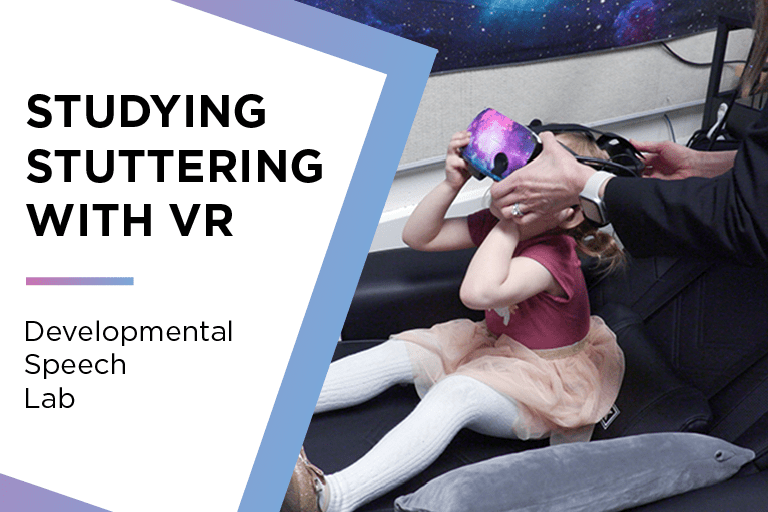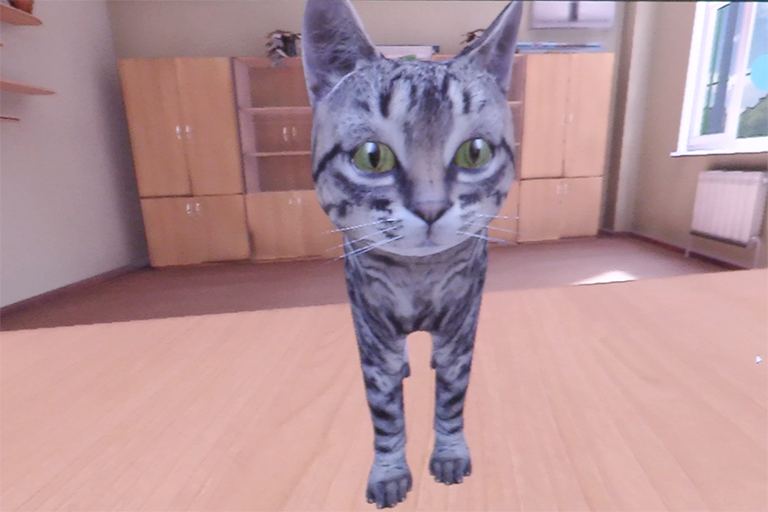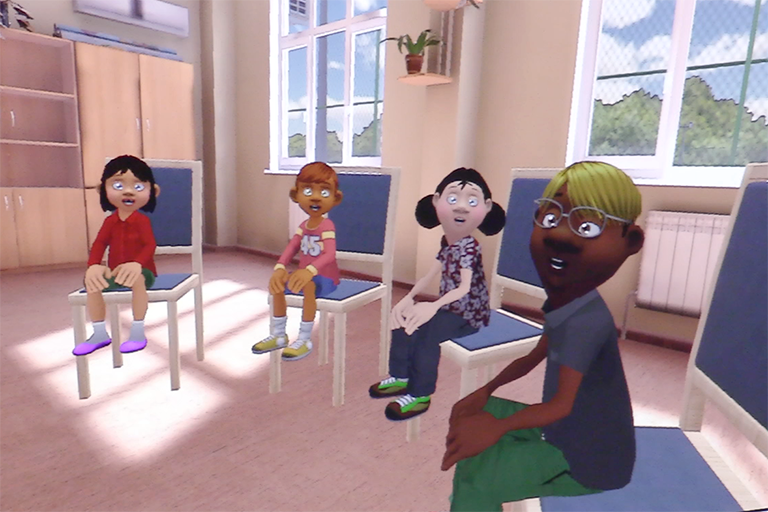Researchers In the Developmental Speech Lab at Michigan State University are conducting studies using VR scenarios they have co-developed to explore how different simulated communication situations induce changes in speech and autonomic nervous system activity.
Harnessing virtual reality to understand childhood stuttering
In the Developmental Speech Lab (DSL), scientists, speech-language pathologists and students work together to understand how stuttering develops in young children — with the goal of improving diagnostic and treatment approaches for children who stutter.
This pediatric lab is directed by Dr. Bridget Walsh, a certified speech-language pathologist, Brandt-Endowed Associate Professor, and director of undergraduate studies for MSU’s Department of Communicative Sciences and Disorders (CSD).
Supported by a grant from the National Institute of Health (NIH), Walsh and her team want to learn why stuttering persists for some children while others outgrow the condition, and what other factors might be contributing to speech fluency.
“People who stutter anecdotally report that speaking in certain communication situations causes them to stutter more or less,” Walsh said. “Variability is one of the ‘hallmark features’ of stuttering, and it’s also a significant challenge for people. But it’s difficult to replicate real-world communication situations in a lab setting that would allow us to research stuttering variability.”
To this end, they’ve designed a unique VR experiment to simulate real-life scenarios.
In collaboration with Gareth Walkom, Belgian founder of withVR and a person who stutters, the study immerses children in two VR speaking situations: a “higher-load” condition in which children participate in a virtual classroom circle and a “lower load” conversation with a virtual pet. Walkom’s VR software, supported by major backers like Google, aims to serve both research and clinical purposes.
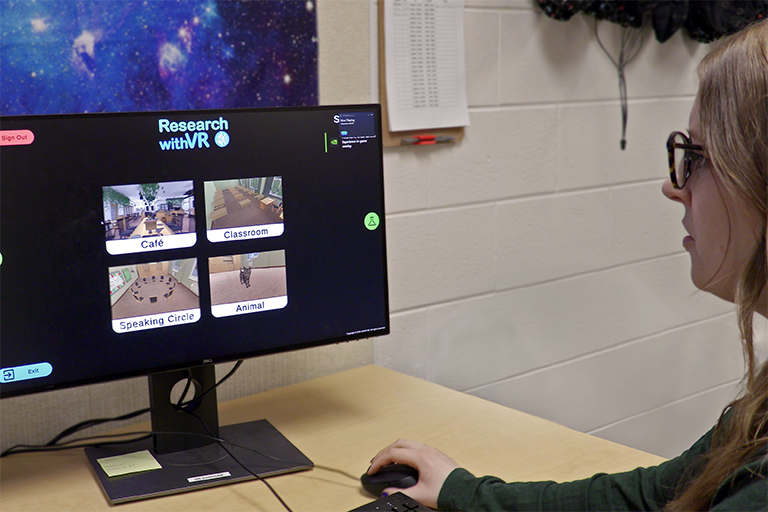
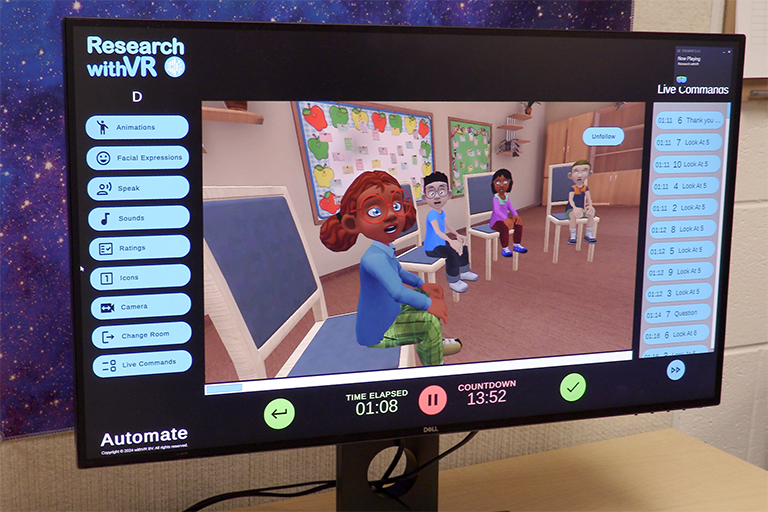
Photos: The researchers select the speaking scenario and view what the child sees in the headset.
“Gareth developed these scenarios specifically for us,” Walsh said of their collaborator. Originally, the withVR tool came packaged with a coffee shop scene for adults. “And we thought, ‘That’s great. But we’re working with four- and five-year-olds.’ We provided input for how children would behave and what they would say in the virtual classroom scenario.”
The VR environments offer a realistic context, addressing the challenge that laboratory results often fail to capture real-life speech dynamics. Early sessions with control participants, children who do not stutter, recently began the VR scenarios — ushering in fresh excitement for the project that has been two years in the making.
“We are so excited about the potential of VR,” said Walsh.
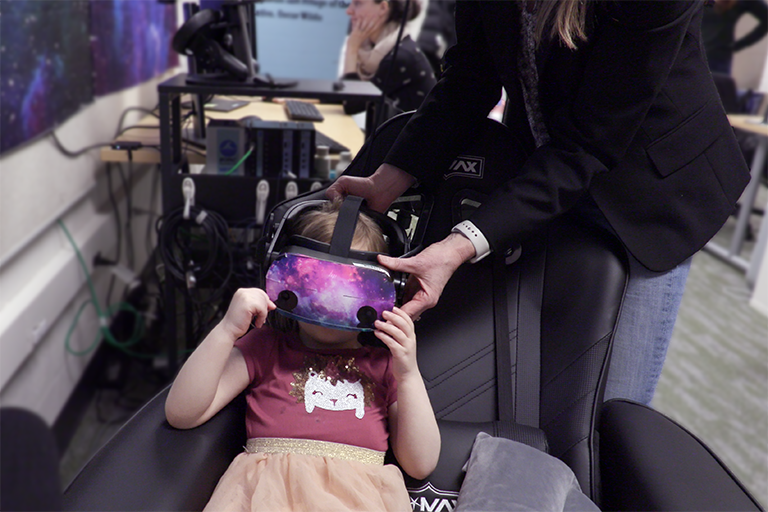
Photo: Dr. Walsh helps a child put on the virtual reality headset.
The lab itself is designed with a welcoming, spaceship theme to ensure children feel at ease, encouraging their return for follow-up studies. These longitudinal studies are vital for tracking the development of stuttering over time. The research also has promising clinical implications, particularly in desensitization therapy, helping those who stutter practice speaking in realistic, controlled environments.
As the study advances, the team hopes VR technology will illuminate the intricacies of stuttering variability and lead to more effective therapies — ultimately improving the lives of those who stutter.
By Jessica Mussell
Developmental Speech Lab research
If you are interested in our research, please contact Dr. Bridget Walsh.
For Families: Participate in Research
